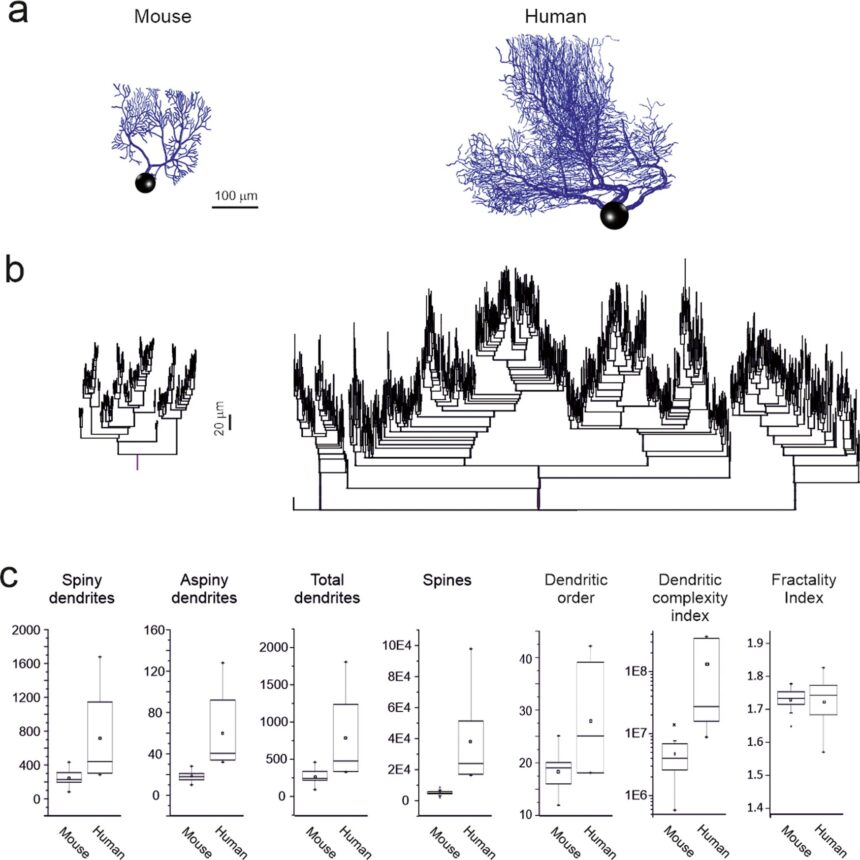The human brain is known for being one of the most complex organs in the animal kingdom. A recent study compared the brains of mice and humans in order to gain insights into how the human brain has evolved to allow for better cognitive processing. This comparison revealed that the human brain has larger and more complex purkinje cells, allowing for greater computational capacity.
What are Purkinje Cells?
Purkinje cells (PCs) are a type of neuron cell found in the cerebellum, characterized by large numbers of dendritic spines. They play a crucial role in coordinating motor movements and are one of the largest and most intricate types of neurons found in the brain.
The Study
A multi-institutional research team conducted a comparative analysis of PCs collected from human and mouse brains. They closely examined both using microscopes and also created models to compare how they function in their respective brains. By comparing these models, the researchers found that the human PCs have approximately 7.5 times more dendrites than those in the mouse brain. The PCs were also larger overall, allowing for larger, more complex, and sophisticated neural architectures.
The Results
The study also found that the increased dendritic complexity in human PCs allows for a higher processing power in the human brain compared to the mouse brain. The higher number of dendrites in human PCs allowed for building networks that were orders of magnitude more complex than those in the mouse brain. As a result, the research team suggests that the development of more complicated neurons, such as PCs, has greatly enhanced the computational capacity of the human brain.
In Conclusion
This recent study has provided valuable insights into the evolution of the human brain. By comparing purkinje cells in mice and humans, the researchers were able to better understand how the human brain has evolved to become one of the most complex and intelligent organs in the animal kingdom.
For more information, you can refer to the journal “Communications Biology” and the corresponding DOI: 10.1038/s42003-023-05689-y.
In conclusion, the research findings illustrate the ways in which the human brain has evolved in comparison to other animals, particularly mice. The study’s focus on Purkinje cells revealed significant differences in dendritic complexity and computational capacity between human and mouse brains, suggesting that the development of more complicated neurons in humans enhanced their computational capacity and intelligence. These insights provide valuable information for understanding the unique complexity of the human brain and its cognitive processing abilities. The research is published in the journal Communications Biology in 2024.










